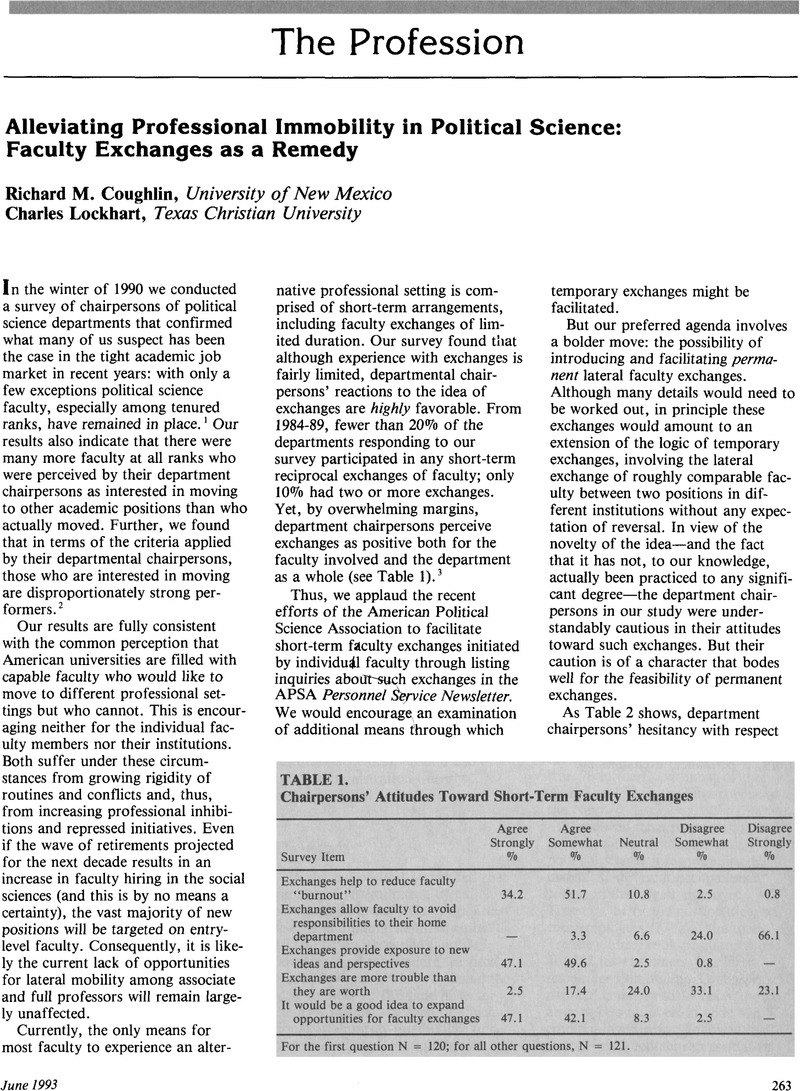No CrossRef data available.
Published online by Cambridge University Press: 02 September 2013

1. Between December 1989 and January 1990 questionnaires were mailed in a single wave to 252 political science and 224 sociology departments offering graduate degrees. The total response rate was 47% for the combined samples. Thirteen responses lacked departmental identification and were thus not usable. The net response rate for political science departments was 48%. Departments responded in roughly equivalent proportions across three categories that we constructed on the basis of reputational prestige. For a more detailed report of the survey results, see Richard M. Coughlin and Charles Lockhart, “Alleviating Professional Immobility in Political Science: Faculty Exchanges As a Remedy,” unpublished manuscript, Albuquerque, New Mexico, May 1992.
2. It is important to keep in mind that, although we speak of faculty members' interest in moving, our formal unit of analysis is the department as experienced and/or perceived by the (then) department chairperson.
3. The pattern of results for our “sibling” discipline of sociology is nearly identical. See Coughlin, Richard M. and Lockhart, Charles, “Alleviating Professional Immobility in Sociology: Faculty Exchanges As a Remedy,” Footnotes 21 (January 1993): 8 Google Scholar.